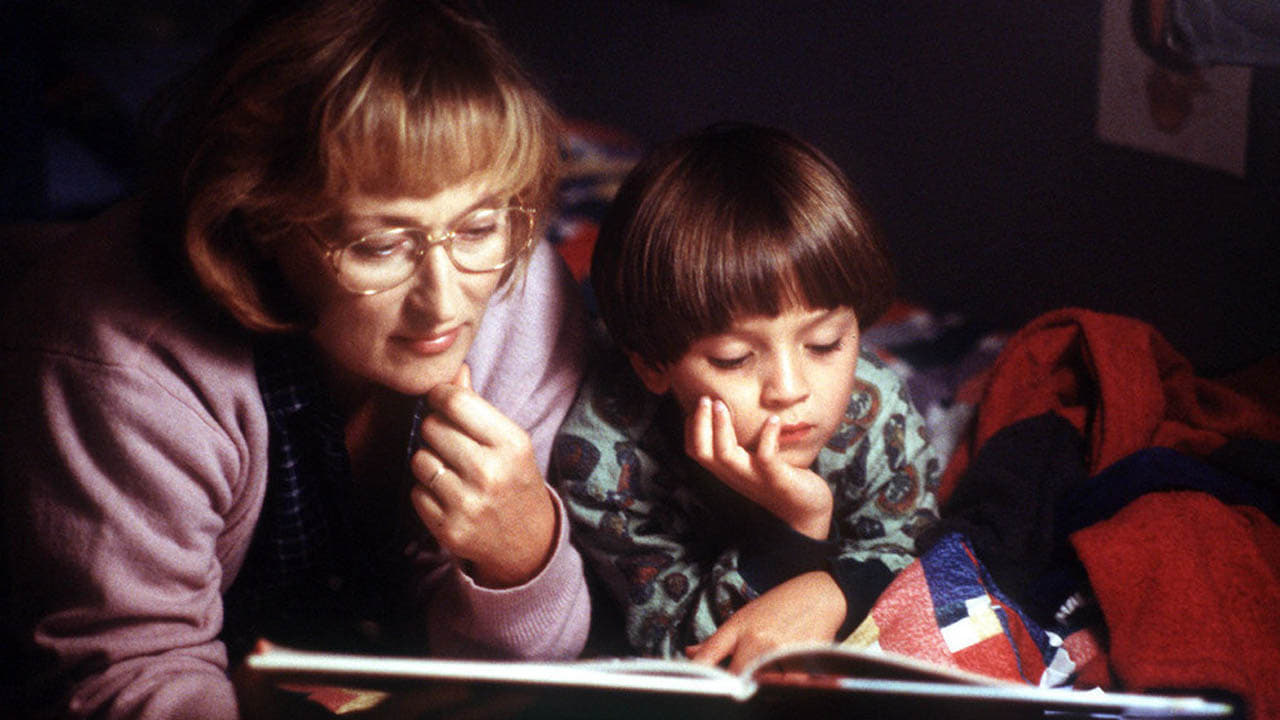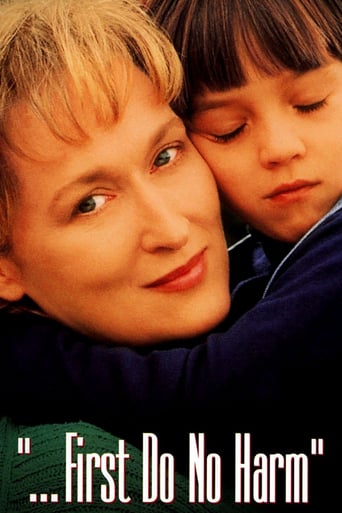

as this movie starts,a voice comes on as wells the words,saying that although his story is fictionalized,it is inspired by a true story.it's all bout how the medical community is unwilling to think outside the box when it comes to alternative treatments for sick people,that they don't approve of. one family learns this the hard way,when their young son is struck ill,and despite not getting better in hospital,the doctors want to continue to try treatments that don't work.this movie is heart wrenching at times,and frustrating.Meryl Streep and Fred Ward star as the parents who are running out of options for their son and are at their wits end.Streep and Ward both are great here.Allison Janney(The West Wing)also puts in a good performance. too be fair,not everyone in the medical establishment is unwilling to think out of the box,and the movie shows this as well.for me,First do no Harm is a 7/10
... View MoreI really enjoy watching Meryl Streep in everyone of her movies. She is by far a very talented actress and one that only comes around once in a generation. This movie is so moving. Seth Adkins, who plays the ill child, is also very talented. He is shockingly believable as a child with epilepsy, especially for a kid his age. This movie will definitely make you think twice about how well you have it. You will fall in love with the character of Robby and feel the pain his family has to go through. During the hardships they face. Everyone who watches this movie will most likely think twice about epilepsy and not think of it as a small disease. I had know idea that it was so serious or that there was a cure to stop the ceasars.
... View MoreI may not be a person living with Epilepsy, but I live with someone who has it. This movie is a moving portrayal of a family coping with a son with seizures he cannot control and the medical establishment that won't do what's needed to help their son so the mother does whatever she can to help her son overcome the disorder that has taken over his life by trying to get him into a program called the Ketogenic Diet and doing whatever is necessary to help her son. The film also shows how the family copes with their family members epilepsy. Realistic portrayal of a seizure which will make you cry. I know it did for me. I recommend this movie for people with epilepsy and those without so they can see how epilepsy and seizures can take control of ones life.
... View MoreThe main and actually the only complaint I have about this film is, that it falls prey to the typical TV movie set up, which means that this truth inspired story is somewhat over dramatized. Apart from that though, there is nothing much I have to complain about. The performances are safe and sound and so is the directing. I will not give away too much here, but this film is actually quite thought provoking, even in the beginning, starting with the oath of Hippocrates that each doctor is destined to take before being set free on the general public. Note the part where the oath contains the subjectivity of the doctor in stating that the doctor should do the things he deems necessary, right or something of the like. This part of the oath of Hippocrates sets the tone for the rest of the movie, in which doctor's seem to do what they seem is best, but not try everything there is, because it is supposedly not to be scientifically proven. While watching this film one actually gets the impression that our dear doctors think that something is scientific only when it is either scientifically manufactured (drugs) or when there are active reconstructions made on the human body. The fact that other forms of treatment (like acupuncture, diet, change of environment) could actually do something about a disease is out of these scholars reach and most of them seem to make the mistake of looking at diseases through the view of their studies and totally neglecting the more logical holistic view on illnesses. This film shows us that there are things that can go wrong when you go to the doctors, that they too are only humans and its advice is: smarten up. If you're seriously ill, read books, educate yourself and make sure that everything there is has been tried, because even doctor's can make mistakes. 7 out of 10
... View More